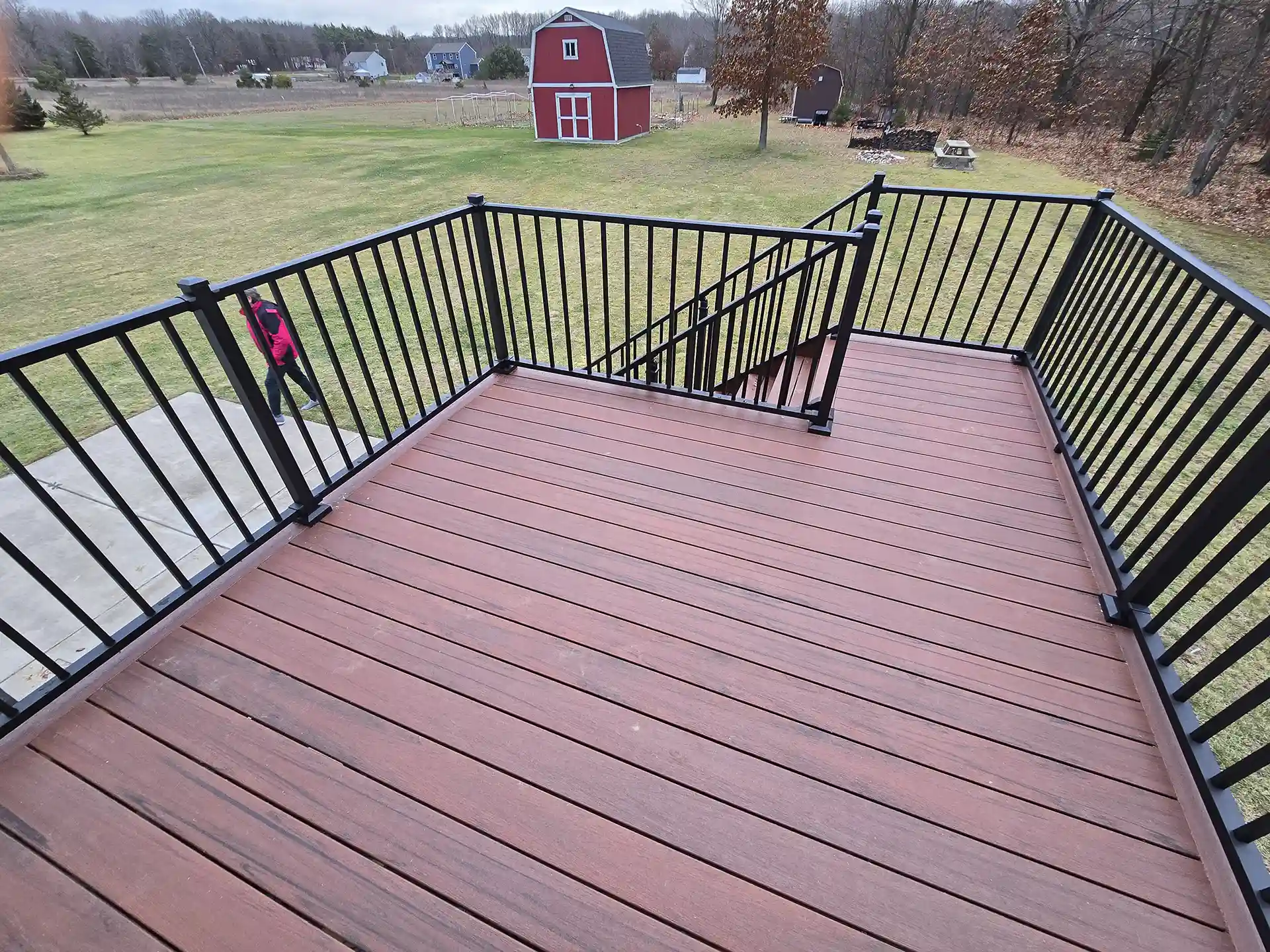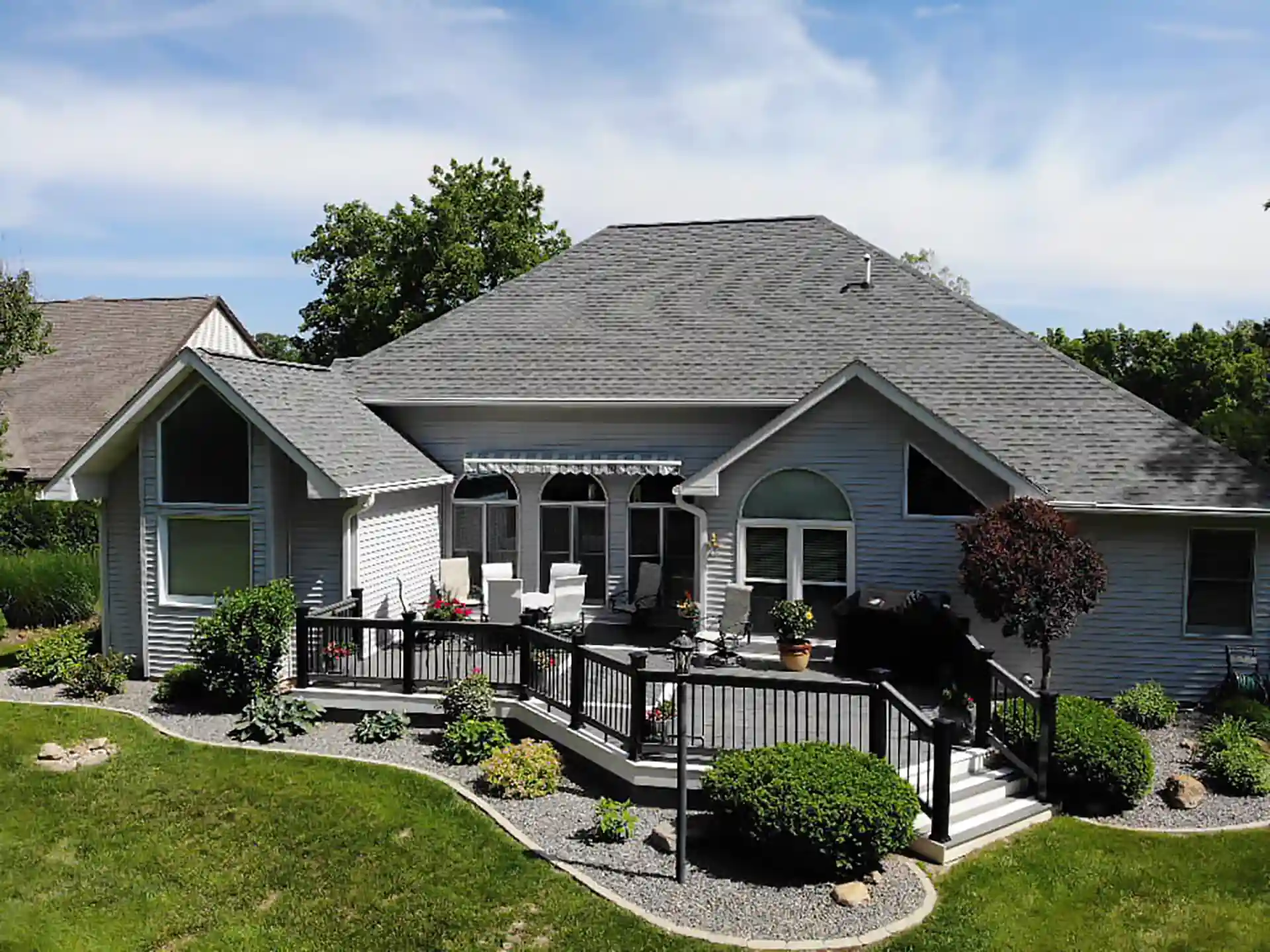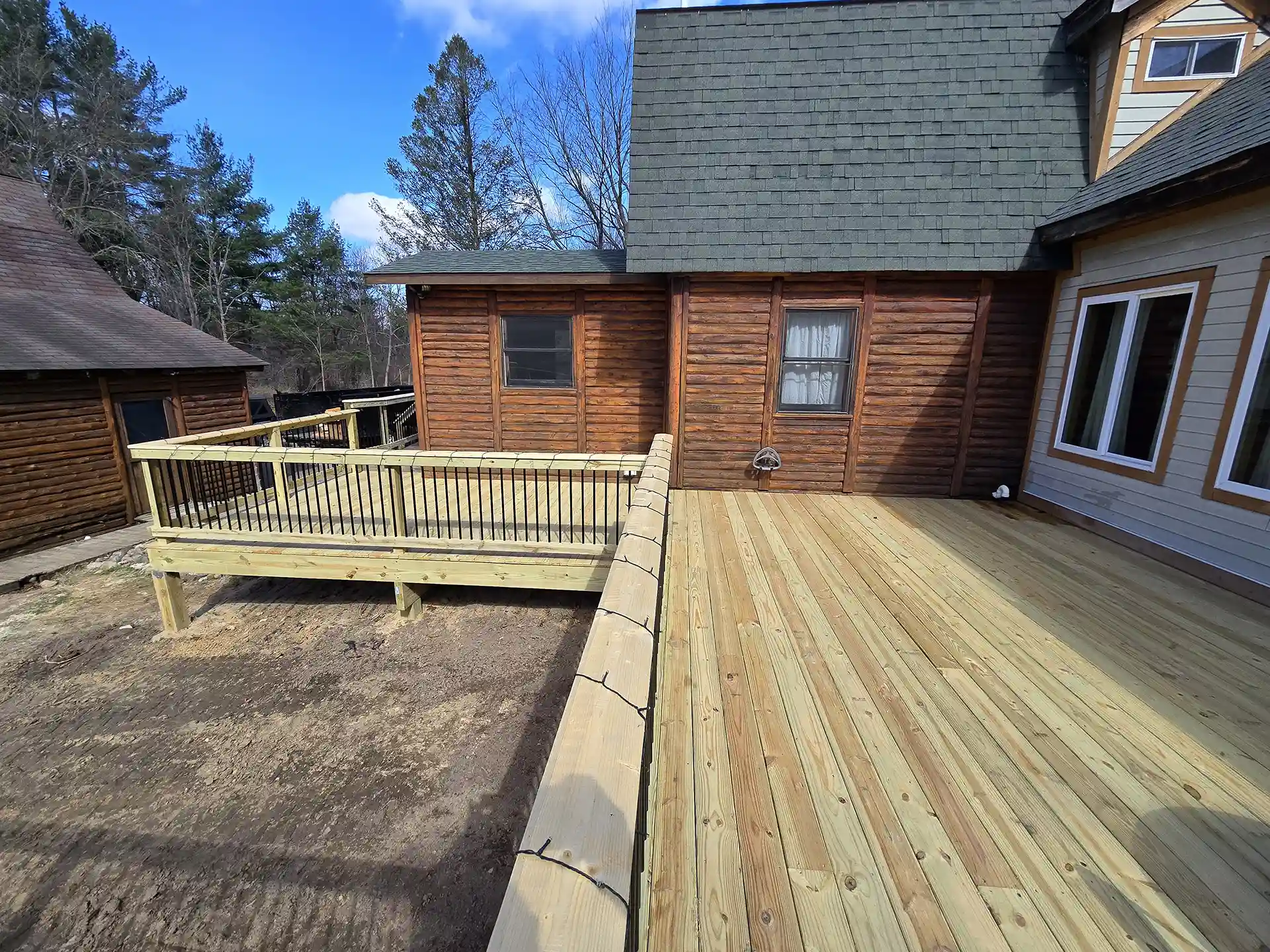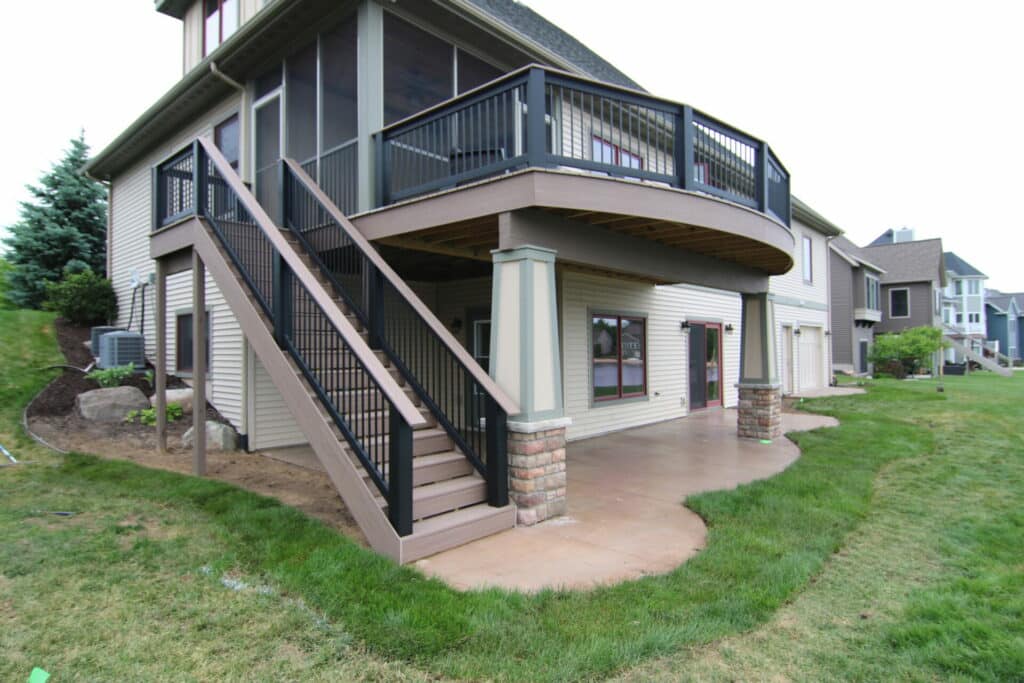Homeowners want the benefits of composite decking without the high price tag. Many are looking for the cheapest composite decking options that still offer durability and low maintenance. While premium brands remain popular, the price of composite decking has led some to seek more affordable alternatives.
At Precision Decks & Patios, we are seeing local lumber yards in the Greater Grand Rapids area starting to carry more budget-friendly composite options, including Armadillo. This shift allows homeowners to explore the lowest-price composite decking choices without sacrificing key benefits like resistance to rot, mold, and splintering. As the demand grows, deck builders are working to provide more value choices that balance quality and affordability.
Armadillo Composite Decking: An Affordable Alternative
Armadillo composite decking is becoming a go-to option for homeowners looking for lower composite decking costs without sacrificing longevity. It provides a budget-friendly alternative to high-end brands while still offering the benefits of composite materials without additional costs.
- Material and Construction: Armadillo composite deck boards are made with a polyethylene core and a protective polymer cap, helping resist moisture, rot, and insect damage.
- Affordability: Compared to Trex decking costs and TimberTech costs, Armadillo offers a better price while maintaining solid performance. Also, because this has a lower price point than other composite decking brands, you might be able to afford a larger deck size for less money.
- Durability and Maintenance: While not as resistant to fading and scratches as some premium brands, Armadillo still requires far less upkeep than wood decks, reducing long-term composite deck costs.
How Armadillo Decking Compares to Premium Composite Brands
Homeowners looking to keep composite decking costs down can compare Armadillo to premium brands like Trex, TimberTech, Fiberon, and Deckorators. While each brand offers durability and low maintenance, differences in material composition, scratch resistance, and long-term performance impact the overall composite decking material cost. Here are the key factors for each brand:
Feature | Armadillo | Trex | TimberTech | Fiberon | Deckorators |
Material Composition | Capped composite (polyethylene core, polymer shell) | Capped composite (HDPE, 95% recycled materials) | Capped composite & PVC hybrid options | Capped composite with fade-resistant technology | PVC-capped and mineral-based composite (Voyage, EDGE) |
Durability | Moderate scratch/mold resistance; may fade faster | High durability, stain & mold resistant | Superior moisture resistance, ideal for humid climates | Enhanced fade resistance, dual-sided texture on some boards | Strong scratch resistance, resists thermal expansion |
Best Use | Budget-friendly option for low-traffic areas | Heavy-use decks, long lifespan | High-humidity areas, long-term performance | Homeowners wanting deeper textures and color retention | Extreme durability, stable in hot/cold climates |
Price Range | Most affordable composite option | Mid-to-high price depending on the line | Higher-end composite & PVC pricing | Mid-range to premium pricing | Premium pricing (mineral-based composites are top-tier) |
Overall Value | Great for budget-conscious homeowners seeking a low-maintenance alternative to wood | Reliable and widely available, strong brand reputation | High-end choice for those needing top moisture resistance | Good balance of durability and aesthetics | Ideal for homeowners prioritizing scratch resistance and stability |
For those focused on composite decking board price, Armadillo offers a solid entry-level option. However, if long-term endurance and fade resistance are a priority, Trex decking or TimberTech might be worth your investment.
Pressure-Treated Wood: Another Budget-Friendly Choice
Some homeowners looking to keep prices down might ultimately decide on pressure-treated wood decks. While the price of composite decking boards has become more competitive, wood remains the most affordable decking material for a custom deck when considering the upfront costs.
- Lower Initial Cost: Pressure-treated wood costs less than composite decking, making it an attractive option for budget-conscious homeowners.
- Higher Maintenance Needs: Unlike composite decking, wood requires regular staining, sealing, and repairs to prevent rot, splintering, and insect damage. So, over time, maintenance expenses can make the total composite deck cost more comparable to wood.
- Longevity Considerations: With proper care, pressure-treated wood decks can last 10–15 years. Composite alternatives, despite a higher initial investment, often last 25–30 years with minimal upkeep.
Helping Homeowners Make the Right Choice
Choosing the right material for your deck project involves balancing cost, sturdiness, and maintenance. We understand that homeowners want quality without overspending, which is why we will work with you to find the best option for your budget and home.
For those debating between composite and wood, let our team offer guidance on long-term costs and composite decking prices. By weighing factors like strength, upkeep, and warranties, homeowners can make informed decisions that fit their budget and lifestyle.
Precision Decks & Patios is committed to helping homeowners find the best solution—whether it’s composite or wood. Contact us today to schedule a free consultation to find the best product for you.





